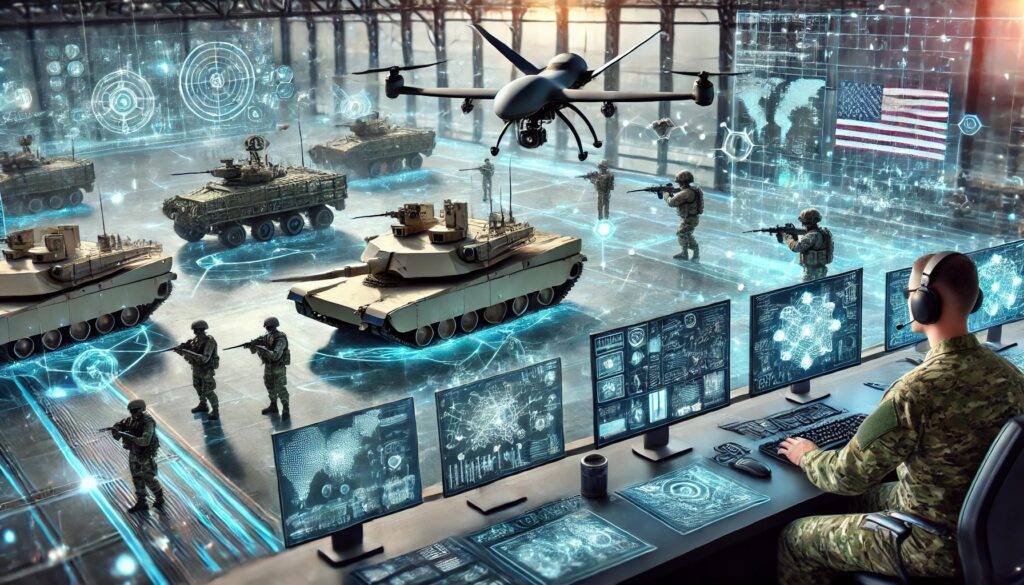The integration of AI in military decision-making is a subject of immense importance and potential. As artificial intelligence systems evolve, their applications within the military framework are becoming more profound and impactful. From strategic planning to tactical operations, AI is transforming the way nations perceive and execute military endeavors.

Introduction to AI in Military
Artificial Intelligence (AI) has made significant inroads in sectors like healthcare, finance, and communications. The military domain is no exception. With growing geopolitical complexities, the need for efficient and rapid decision-making has become pivotal. The introduction of AI into military operations is not just a trend but a necessity.
Key Applications of AI in Defense
Enhanced Situational Awareness
AI systems significantly bolster situational awareness by processing vast amounts of data far quicker than a human could. Integrating sensors and satellite imagery, AI helps in identifying potential threats and strategizing responses without human biases.
Autonomous Weaponry
The development of autonomous drones and other unmanned systems is perhaps one of the most debated areas. These systems bring precision and efficiency while minimizing human risk. However, ethical considerations are paramount.
Simulation and Training
Advanced simulations employing AI provide realistic training environments. Soldiers can engage in various scenarios, preparing them for real-life situations. AI-driven training modules adapt to individual learner needs, enhancing overall preparedness.
Challenges in Military AI Implementation
Ethical Concerns
The deployment of AI in the military is fraught with ethical dilemmas. Questions arise about accountability, especially concerning autonomous weapon systems, and the potential for unintended consequences.
Data Security
The reliance on AI models necessitates the protection of sensitive data. Robust cyber defense mechanisms are essential to safeguard military intelligence from adversaries.
Future of AI in the Military
AI-Powered Decision Support Systems
Future advancements are likely to see AI taking a more central role in decision support systems. These systems will offer commanders advanced tools to evaluate various scenarios and outcomes, thus making informed decisions swiftly.
Integration with Existing Technologies
AI will seamlessly integrate with technologies like autonomous systems and IoT, creating a cohesive battlefield network. This network will enhance communication and response times significantly.
Conclusion
The integration of AI in military decision-making represents a transformative progression in defense strategies. As technologies evolve, so too will the capabilities of AI systems, ensuring they become indispensable allies in safeguarding national security.

FAQs About AI in Military Decision-Making
What are the key benefits of using AI in the military?
AI provides enhanced data processing capabilities, improving decision-making speed and accuracy. It also enables risk reduction through autonomous systems.
What ethical concerns are involved with AI in the military?
Ethical concerns include accountability for actions taken by AI, potential civilian harm, and the broader implications of autonomous weaponry.
How does AI ensure data security in military applications?
AI systems are armed with advanced cybersecurity protocols to shield sensitive data, reducing the threat from cyber attacks significantly.
For further insights on AI applications in military, check the [U.S. Army’s generative AI platform](https://www.afcea.org/signal-media/us-army-launches-generative-ai-platform-groundbreaking-move) or [DOD’s AI spotlight](https://www.defense.gov/Spotlights/Artificial-Intelligence/), available online.

